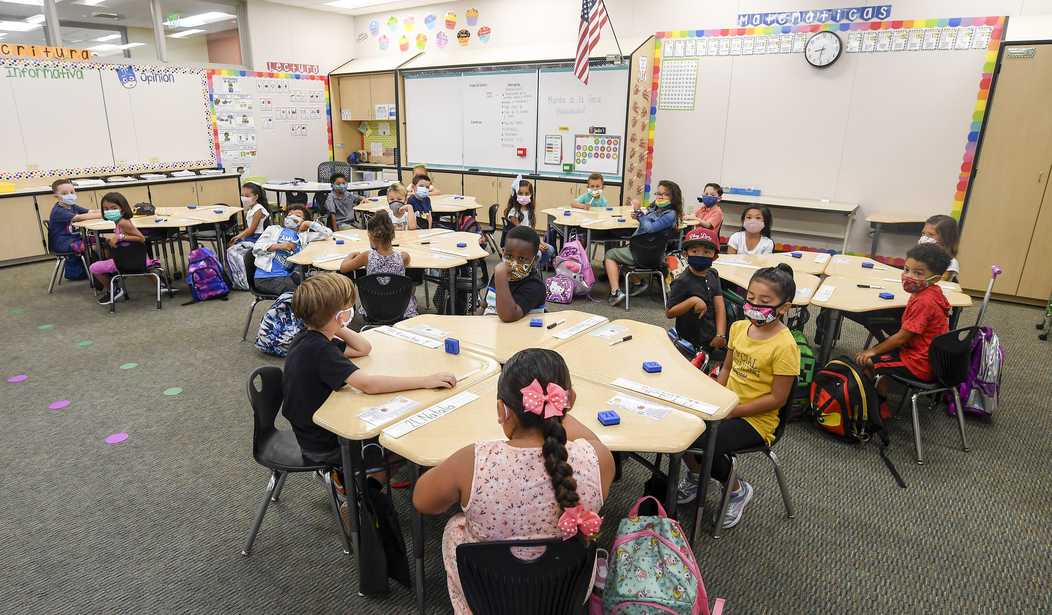I came across this article today about Portland teachers who are embracing a program called LETRS (Language Essentials for Teachers of Reading and Spelling) which has teachers focus on phonics in place of other curriculums which have not worked well. Back in 2016, Portland’s public schools essentially made up their own reading program out of mix-and-match components selected from different publishers:
At the strong urging of teachers and other educators who’ve sampled various reading series, Oregon’s largest district on Tuesday rejected offerings from every major publisher. Instead, it decided to buy six components from five companies and combine them into a unique reading and writing curriculum of its own…
Mixing and merging an assortment of reading programs “is risky,” said University of Oregon education professor Gina Biancarosa, a Harvard University-trained expert in reading and literacy. The effectiveness of the suite of materials Portland and Beaverton have chosen is unproven, and the approach requires greater skill and judgment by teachers to pick the right lessons and the smartest sequence for skill-building…
Mainstream reading programs, which contain scripted lessons designed to teach phonics, fluent reading, accuracy, comprehension and vocabulary, are called comprehensive core reading programs. Research into how young readers learn, along with a big nudge from the federal No Child Left Behind law, enshrined them as standard in nearly all U.S. schools over the past decade and half.
But after Portland Public Schools’ current reading series, Scott Foresman’s Reading Street, didn’t pan out well, district officials were open to novel options. A district selection committee eventually suggested forgoing any mainstream reading series until at least 2023…
In 2014, the last year Oregon’s old state tests were given, 27 percent of the district’s third-graders failed the reading exam. In 2015, using the more challenging Smarter Balanced tests, 43 percent of Portland third-graders, including about 70 percent of blacks and Latinos, fell short of the national proficiency standard.
In short, they decided to leave phonics behind and strike out into bold new territory. But the results were not good, especially for minority students. By 2019, Portland was desperate to see reading scores improve:
Portland Public Schools will try to more than double reading and math proficiency rates for three traditionally underserved student populations by 2022, a move Superintendent Guadalupe Guerrero said is “unprecedented.”…
Only around 19% of black third graders met state benchmarks for reading in 2018, according to district figures, compared to 74% of their white peers. Thirty-four percent of Latinos met the same standard as did 19% of migrant students.
A Portland parent named Angela Uherbelau began advocating for a new approach called LETRS which returns to a focus on phonics. That program had been instituted in Mississippi and the state had seen some real improvement in scores.
In 2013, the Mississippi Legislature passed the Literacy-Based Promotion Act, which, among other things, set aside funding to educate teachers in the science of reading. Six years later, the heavily Black southern state posted the highest gains in reading proficiency in the nation — 10 percentage points over the previous year. That same year, lawmakers in Alabama similarly set aside a pot of money to train teachers in the same science of reading program…
Cathy Parker, a reading specialist at North Portland’s Woodlawn Elementary, said she was interested in learning to use the LETRS program for one major reason.
“It’s not a curriculum,” Parker said. “It’s a set of strategies and you get to go at your own pace.”
As she went through each module, Parker found she could immediately apply what she learned in the classroom the next day, she said. The training allowed her to better diagnose what students need by providing her insights into how kids decode words.
LETRS requires about 160 hours of training for teachers so when the district put out a call for teachers willing to get the training on their own time, they were expecting a marginal response. Instead, teachers packed the room at the first meeting and many of them are now making their way through the program. But it’s not just Oregon, Mississippi and Alabama that are embracing this. North Carolina has also recently adopted LETRS:
Amy Rhyne, North Carolina’s director of early learning, said that means educators are dealing with two crises: The pandemic itself and the prospect of seeing students lose ground they might never recover…
Pre-pandemic, 57% of all third graders earned the minimum reading score required for promotion to fourth grade. Last year that sunk to 45%. Only about 30% of Black, Hispanic and economically disadvantaged third graders hit that mark…
This spring, the General Assembly offered its solution: Mandatory training for everyone who teaches young readers. Elementary and pre-K teachers are required to take a program called LETRS…
Rhyne says classes emphasize basics that have been taught for years, such as understanding the sound letters make and decoding how they combine to make words. The approach is often called phonics for simplicity. She says LETRS is time consuming because many educators have to unlearn strategies that didn’t work.
So it sounds as if this program is spreading. I’m sure there are critics out there who think it won’t work but it sounds like the programs and curriculums LETRS is replacing in places like Portland were a disaster that needed to be scrapped.








Join the conversation as a VIP Member